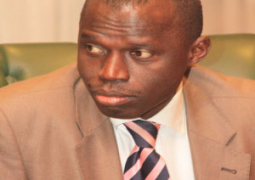UNICEF in collaboration with the Ministry of Health and Social Welfare in
On the theme, “Children in an Urban World,” the 2012 report among others focuses on the more than 1 billion kids growing up in burgeoning cities around the world.
Launched at a ceremony held at Kotu Quarry in the
On average, children in urban areas are more likely to be well-fed, educated and healthier than those in rural areas, but as the UNICEF report highlights, this so-called “urban advantage” is gravely misleading.
Children in urban areas are more likely to survive their early years and, on average, benefit from better health and education, than their rural counterparts.
However, according to UNICEF, the gap between the rich and the poor is often more pronounced in cities, creating a greater disparity in basic needs and rights.
While many children are able to enjoy the advantages of urban life, including access to education, medical and recreational facilities, UNICEF said far too many are not, as many children are denied basic essentials such as clean water, electricity and health care, despite their proximity to these services.
In her launching statement on behalf of the Vice President and Minister of Women’s Affairs, the minister of Health and Social Welfare, Fatim Badjie, said the report calls for greater recognition of community-based efforts to tackle urban poverty, and gives examples of effective partnerships with the urban poor, including children and adolescents.
According to her, the full and committed involvement of our local government and community structures will offer a prime opportunity to promote and act upon our commitment to children’s rights and child protection.
“However, to attain the right of every child to a standard of living adequate for his or her physical, mental, spiritual, moral and social development, we need to empower families and care givers to provide adequate and appropriate care and protection to children, since developmental deficiencies that occur during childhood are difficult to reverse,” she stated.
She added that it has now become accepted, both in Africa and the rest of the world, that for us to achieve the MDG targets and to create a world fit for children, we must promote peace and security, adopt sound economic and social polities, as well as make efficient and effective use of limited resources.
Aichatou Diawara Flambert, UNICEF representative in The Gambia, said each year the report serves as a score card for every country to assess the gains made and challenges faced in meeting their commitments to the rights of their children.
“This year, the report examines the situation of children living in urban communities, and looks at how urbanization leaves many of them practically invisible and excluded from vital social services,” she stated.
According to her, due to the rapid increase in rate of rural-urban migration, services and infrastructure in most urban communities are not keeping up fast enough.
She noted that while many children continue to enjoy the advantages of services such as schools and hospitals, the poorest and most vulnerable children become marginalized with very little or no access to basic needs such as health services, education, clean drinking water, secure housing, healthy environment, safe playgrounds, birth certificate and adequate protection from violence, abuse and exploitation.
Other speakers at the launching included mayor Yankuba Colley of the




